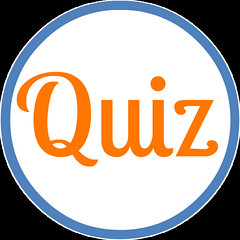
The verdict in the George Floyd murder trial provides your arts organization with an opportunity to take a very simple quiz to determine its readiness for engaging with communities. Here are three questions:
- Did your organization immediately think “In what ways can we help the people of our community deal with this?”
Awareness of community issues is one of the most basic elements of community engagement. (Of course, it’s a little difficult to imagine anyone not being aware of this issue.) How tuned in is your organization to the things of importance to your communities? In addition, a positive answer to this question is a demonstration that your organization understands that it can be a resource for the community. It also probably suggests that your organization wants to be such a resource.
- Does your organization have relationships with communities heavily impacted by the verdict?
A critical (perhaps the most important) factor in successful engagement is the existence of a trusting relationship between the community and the organization. This is especially true in a situation as fraught as this one. It is possible to embark on engagement with little or no pre-existing relationship but community wariness [You’re just trying to sell me tickets.” or “Why have we never heard from you before?”] can make relationship building from scratch difficult.
- Did your organization immediately think of works (or activities) it could produce that might be helpful to communities processing or responding to the verdict?
Practice thinking of our work as a resource for communities enables us to imagine potential options more readily. At the same time it’s important not to assume that our ideas will be helpful. That’s why this question comes after the second one. It’s vital that we don’t heedlessly inflict ourselves upon communities, thinking we know what’s needed. (We don’t.) Asking the community what might be helpful, making suggestions with an awareness that they may not be what’s needed, is an essential part of the engagement process. Communication–dialogue (including real listening and learning)–and collaborative program design are the keys to becoming effective in engagement.
There it is–three fairly straightforward questions. (But they must be answered honestly.)
Organizations do not, of course, have to focus on engagement. However, as I have spent the last decade saying, if you don’t you will not be on a path to gaining recognition as being vital to your community; plus, your future prospects as an organization will be bleak.
So here’s the “answer key” to the quiz:
- If the answer to the first is “No,” work needs to be done in getting your organization thinking differently about its work.
- If the answer to the second is “No,” at least fast track some relationship building (but this will be difficult and complicated). A better response may be to let this moment go and work on developing relationships over time. This can be the “pure research” part of community engagement. Scientists pursuing such research don’t know if they will be successful nor do they know what might come of their discoveries. They just know that doing the work is important. Similarly, in building relationships, we don’t always know how and when those relationships will prove to be invaluable.
- If the answer to the third question is “No,” your organization just needs more practice in imagining connections between its work and the interests of your communities.
- If your answers to all three are “Yes,” “Good on ya” as the Australians would say. You are well on the path to being vital to your communities and your future is far brighter than it would be otherwise.
Engage!
Doug
Photo:

